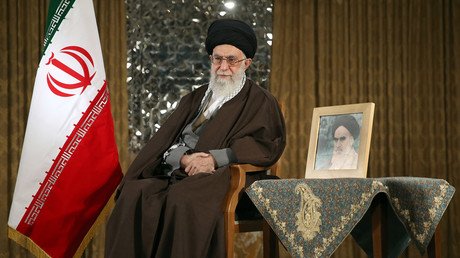‘EU fearful of normalizing ties with Iran without US permission’

The Americans don’t want to see Iranian trade relations with countries across the globe, especially in the case of Europe, to normalize, Professor Seyed Mohammad Marandi from the University of Tehran, told RT.
Iran says the US is violating the terms of last July's nuclear agreement by pressuring companies not to invest in the country. In the long-awaited deal the international community agreed to roll back sanctions against Iran in exchange for it cutting its nuclear program. At the time the agreement was hailed a success, but now it seems cracks are beginning to appear.
RT: Do you think Tehran's accusations are justified?
Seyed Mohammad Marandi: I think that Iran’s argument is quite valid. The Americans have been very slow in implementing the agreement. They’ve also passed a new law restricting visas for anyone who has traveled to Iran over the past five years. And Iranians with dual nationalities who live in Europe or who have nationality from European or Asian countries, they also are restricted from traveling to the US as a result of this law that was supported by the US president.
On the other hand, we see rhetoric coming out of the US; the US president himself at the nuclear summit made comments that were intended to prevent potential investors from coming to Iran. So, the rhetoric is preventive. And also the Iranians have information that the Treasury of the US senior officials are traveling across the globe, speaking to banks and putting pressure on them not to do business with Iran. So the least the one can say is that it is against the spirit of the agreement, especially articles 26 to 29.
RT: The US State Department said Washington doesn't intend to let Iran trade in dollars. Why the restriction?
SMM: The US is trying to limit any potential benefit that Iran gets from the agreement as much as possible. The Americans don’t want to see Iranian trade relations with countries across the globe, especially in the case of Europe, to normalize. And this, as I said, is clear from the statements made by the US president himself just days ago. In reality, I think this is having an aversive long-term effect for the US itself because the US is simultaneously putting pressure on Iran, Russia and China. And these three major powers are seeing one another as increasingly important allies and they have similar relationships with the US. So, that’s bringing about the greater convergence of interests between these different powers.
And it is also hurting any long-term benefit that the US could gain possibly and even the Europeans. The Europeans desperately want to improve relations with Iran, they are very tired of Saudi Arabia and the behavior of Turkish president, but they are too fearful to take any major steps without the permission of the US - just as we saw and we see their relationship with Russia.
RT: Do you think Iran and other signatories of the deal are meeting the conditions?
SMM: According to the IAA chief the Iranians have met all of their obligations and they’ve done it actually at a much more rapid pace than was required according to the agreement itself. So, everything has gone well from the Iranian perspective, international bodies acknowledged that. But on the other hand the Americans have been dragging their feet and they’ve been trying to prevent others from normalizing ties.
The statements, views and opinions expressed in this column are solely those of the author and do not necessarily represent those of RT.














